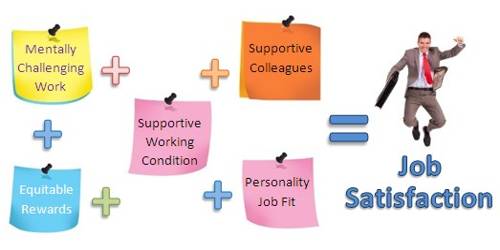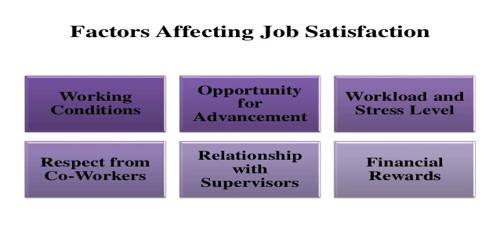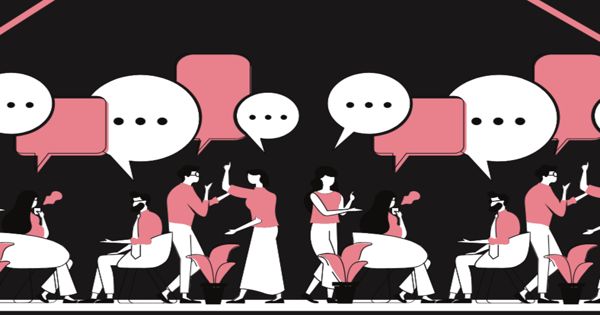Factors Affecting Job Satisfaction
Job satisfaction is one of the most researched variables in the area of workplace psychology and has been associated with numerous ranging from leadership to job design. It is more of a journey, not a destination, as it applies to both employees and the employer. Job satisfaction is influenced or affected by various factors which are as follows:
- Job security
The feeling that the job will last long is a factor f job satisfaction. People are demotivated to work and are less committed to and attached to the job when they know that the job is temporary.
- Employee’s Expectation about Job
People find it satisfying to do the job they love. The expectation of reward from the job greatly influences job satisfaction. After performing the task what the individual is supposed to achieve determines the level of job satisfaction. The expected reward can be in term of intrinsic rewards and extrinsic rewards. For an instance, when a person is doing a job he dislikes, even a small hassle can be irritating and frustrate him. But if a similar problem arises while doing a job he loves, he will take it as a challenge and would take it as an achievement to overcome the challenge.
- Autonomy
People feel satisfied with the job when they and their opinion and works are valued by the company. When a company gives them right to take nominal decisions, employees can make better output, rather than while they work under control.

- Reward and Punishment
This factor is closely related to an expectation of intrinsic and extrinsic reward. Job satisfaction is impacted by an employee’s views about the fairness of the company wage scale as well as the current compensation she may be receiving. Under it, a better performer gets a reward, whereas the worse performer gets punishment. Due to an expectation of reward and fear of punishment, employees are motivated at work thereby leading to job satisfaction.
- Working Condition
Working conditions include workload, necessary equipment, job complexities, work opportunities, health, and safety, etc. Providing productivity tools such as upgraded information technology to help employees accomplish tasks more efficiently contributes to job satisfaction as well. These forces are directly related to the job satisfaction. The better working condition results in higher job satisfaction and vice versa.
- Communication
Employees are more attached and satisfied with the job when they are supported by the company. A properly and effectively designed communication network provides ample opportunity for providing/transmitting various information relating to the job and its environment. Hence, it reduces potential frustration thereby increasing job satisfaction.
- Work Groups
Workgroup or work team is a collection of two or more individuals in order to achieve a common purpose. The nature of such workgroup affects the level of job satisfaction. Job satisfaction directly concerned with employee’s ability, interest, attitude, skills, knowledge etc. Hence, a highly capable person can perform the job effectively and efficiently which leads to greater job satisfaction. If the individuals are closely interconnected with each other and directed toward a common end, the team performance will be enhanced. As a result, greater job satisfaction takes place.
- Supervision
The frequency, nature, and style of supervision also affect job satisfaction. Employees feel irritated when they are micromanaged and feel detached when they do not receive feedbacks at all. When the supervision establishes a supportive relationship with the team members, this will result in greater job satisfaction among the members/subordinates. Attachment with the company is really necessary for employees to feel satisfied with their job.
Information Source:
















